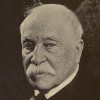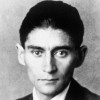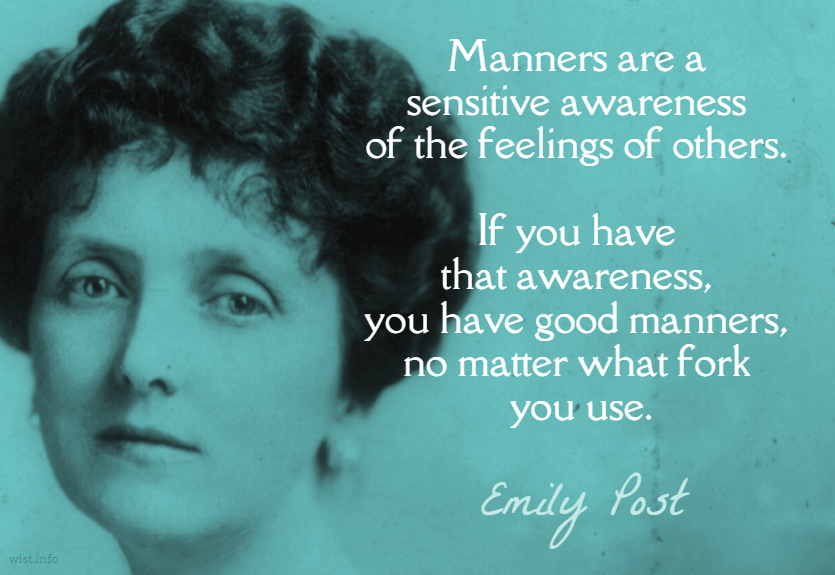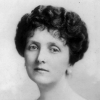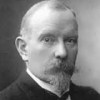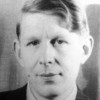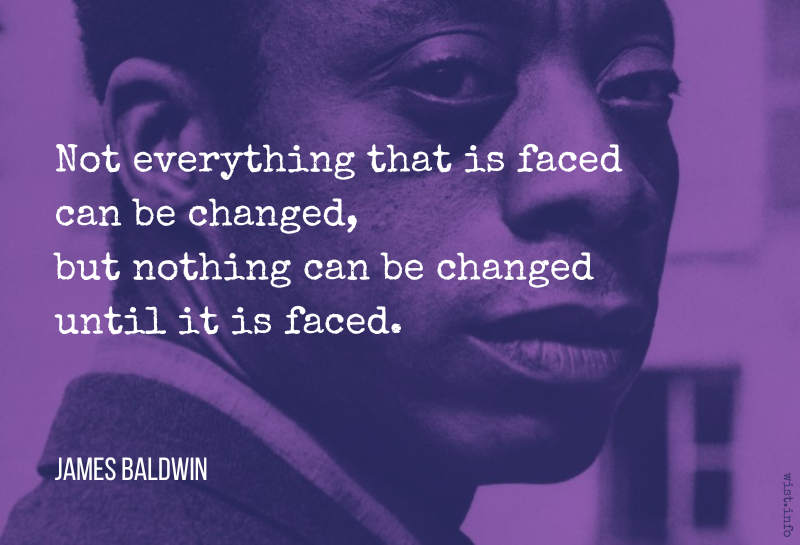To ignore our opportunities for knowledge, imperfect as they are, is like going to the theatre and not listening to the play. The world is full of things that are tragic or comic, heroic or bizarre or surprising, and those who fail to be interested in the spectacle that it offers are forgoing one of the privileges that life has to offer.
Bertrand Russell (1872-1970) English mathematician and philosopher
Conquest of Happiness, Part 2, ch. 15 “Impersonal Interests” (1930)
(Source)
Quotations about:
awareness
Note not all quotations have been tagged, so Search may find additional quotes on this topic.
Nothing is so hard to understand as that there are human beings in this world besides one’s self and one’s own set.
William Dean Howells (1837-1920) American author, literary critic, and playwright
Their Wedding Journey, ch. 2 “Midsummer-Day’s Dream” [Basil] (1872)
(Source)
ARIEL: While you here do snoring lie,
Open-eyed conspiracy
His time doth take.
If of life you keep a care,
Shake off slumber and beware.
Awake, awake!William Shakespeare (1564-1616) English dramatist and poet
Tempest, Act 2, sc. 1, l. 344ff (2.1.344-349) (1611)
(Source)
Warning the sleeping Gonzalo of Antonio and Sebastian's plot to kill Alonso.
All greatness is unconscious, or it is little and naught.
Thomas Carlyle (1795-1881) Scottish essayist and historian
Essay (1837-12-06), “On Sir Walter Scott,” The London and Westminster Review, No. 12/55, Art. 2 (1838-01)
(Source)
Review of J. G. Lockhart, Memoirs of the Life of Sir Walter Scott, Baronet, 6 vols. (1837). Collected in Carlyle, Critical and Miscellaneous Essays (1827-1855).
Lightning and thunder need time, the light of the stars needs time, deeds need time, even after they are done, to be seen and heard.
[Blitz und Donner brauchen Zeit, das Licht der Gestirne braucht Zeit, Thaten brauchen Zeit, auch nachdem sie gethan sind, um gesehen und gehört zu werden.]
Friedrich Nietzsche (1844-1900) German philosopher and poet
The Gay Science [Die fröhliche Wissenschaft], Book 3, § 125 (1882) [tr. Common (1911)]
(Source)
On the death (murder) of God.
The book is also known as La Gaya Scienza, The Joyful Wisdom, or The Joyous Science.
(Source (German)). Alternate translations:Lightning and thunder require time; the light of the stars requires time; deeds, though done, still require time to be seen and heard.
[tr. Kaufmann (1974)]Lightning and thunder need time; the light of the stars needs time; deeds need time, even after they are done, in order to be seen and heard.
[tr. Nauckhoff (2001)]Even after they are over and done with, thunder and lightning take time, the light of the stars takes time, and deeds too take time, before they can be seen and heard.
[tr. Hill (2018)]
Don’t you believe ’em when they say that what you don’t know won’t hurt you. Biggest lie ever was. See it all and go your own way and nothing’ll hurt you. If what you see ain’t pretty, what’s the odds! See it anyway. Then next time you don’t have to look.
Edna Ferber (1886-1968) American author and playwright
Show Boat, ch. 13 (1926)
(Source)
Captain Andy Hawkes to his daughter, Magnolia.
If, as certain small-minded philosophers believe, I shall feel nothing at all after death, then at least I don’t have to worry that they will be there to mock me after they die!
[Sin mortuus, ut quidam minuti philosophi censent, nihil sentiam, non vereor ne hunc errorem meum philosophi mortui irrideant.]Marcus Tullius Cicero (106-43 BC) Roman orator, statesman, philosopher
De Senectute [Cato Maior; On Old Age], ch. 23 / sec. 85 (23.85) (44 BC) [tr. Freeman (2016)]
(Source)
Critiquing the Epicurians, who would disagree with his belief in an immortal soul.
(Source (Latin)). Alternate translations:For if aftir this presente life I be dede as wele in soule as in body as that some yong and smale philosophers of whiche men name Epycures that affermyn, Certayne it is that I shall feele nothyng. And also I am not afferde that suche philosophers so ded mockyn me nor of this myne oppinion. Aftir whiche I verily beleve that the soules be undedly.
[tr. Worcester/Worcester/Scrope (1481)]And if it were not so, that after death I should feel nothing nor have any sense at all (as certain perrifoggers and bastard philosophers hold opinino) I fear not a whit least these lip-labourers and ideitical philosophers, when they themselves be dead, should scoff and make a mocking-stock at this mine assertion and belief, because they themselves shall also be without sense, and like to brute beasts.
[tr. Newton (1569)]But if when I am dead (as some small Philosophers say) I shall feel nothing, I fear not least the dead Philosophers should laugh at this my error.
[tr. Austin (1648)]If those who this Opinion have despis'd,
And their whole life to pleasure sacrific'd;
Should feel their error, they when undeceiv'd,
Too late will wish, that me they had believ'd.
[tr. Denham (1669)]But if after this Life I shall no longer be sensible, as some little Philosophers imagine, then am I in no Fear that dead Philosophers will laugh at my mistaken Opinion.
[tr. J. D. (1744)]And if, when dead, I should (as some minute Philosophers imagine) be deprived of all further Sense, I am safe at least in this, that those Blades themselves will have no Opportunity beyond the Grave to laugh at me for my Opinion.
[tr. Logan (1744)]I have the satisfaction in the meantime to be assured that if death should utterly extinguish my existence, as some minute philosophers assert, the groundless hope I entertained of an after-life in some better state cannot expose me to the derision of these wonderful sages, when they and I shall be no more.
[tr. Melmoth (1773)]But if (as certain super-subtle philosophers conclude) I shall feel nothing, I am not afraid lest these philosophers, when dead, should ridicule this error of mine.
[Cornish Bros. ed. (1847)]But if I, when dead, shall have no consciousness, as some narrow-minded philosophers imagine, I do not fear lest dead philosophers should ridicule this my delusion.
[tr. Edmonds (1874)]While if in death, as some paltry philosophers think, I shall have no consciousness, the dead philosophers cannot ridicule this delusion of mine.
[tr. Peabody (1884)]But if when dead, as some insignificant philosophers think, I am to be without sensation, I am not afraid of dead philosophers deriding my errors.
[tr. Shuckburgh (1895)]But if when dead;
As some philosophers of little note
Believe, I feel no more, there is no fear
These dead philosophers should mock me there.
[tr. Allison (1916)]But if when dead I am going to be without sensation (as some petty philosophers think), then I have no fear that these seers, when they are dead, will have the laugh on me!
[tr. Falconer (1923)]True, certain insignificant philosophers hold that I shall feel nothing after death. If so, then at least I need not fear that after their own deaths they will be able to mock my conviction!
[tr. Grant (1960, 1971 ed.)]If on the other hand, as certain petty philosophers have held, I shall have no sensation when I am dead, then I need have no fear that deceased philosophers will make fun of this delusion of mine.
[tr. Copley (1967)]Some second-rate philosophers suggest that when I am dead I will be conscious of nothing. But all that means is that, if I’m wrong, they won't be able to make fun of me after their death.
[tr. Cobbold (2012)]But anyway, if when I die my spirit also dies, I certainly won't give a flip about the opinions of dead philosophers.
[tr. Gerberding (2014)]If when I am dead I’ll have no sensation,
As some small philosophers think, I won’t fear
Accents of derision from their graves to hear.
[tr. Bozzi (2015)]
Peace is like a beautiful woman — it’s wonderful, but has been known to bear watching.
He listens well
Who takes notes.[Bene ascolta chi la nota.]
Dante Alighieri (1265-1321) Italian poet
The Divine Comedy [Divina Commedia], Book 1 “Inferno,” Canto 15, l. 99ff (15.99) (1309) [tr. James (2013)]
(Source)
Virgil either warning Dante to consider all the predictions / warnings he's receiving from the damned about "future" political troubles, or else praising him for appearing to have remembered them (interpretations vary).
(Source (Italian)). Alternate translations:He listens well, who what he hears remarks.
[tr. Rogers (1782), l. 96]"Unhappy is the man," exclaim'd my Guide,
"From whose weak mind the words of wisdom glide."
[tr. Boyd (1802), st. 18]He listens to good purpose who takes note.
[tr. Cary (1814)]Well doth he hear, who marks what he hath heard.
[tr. Dayman (1843)]He listens well who notes it.
[tr. Carlyle (1849)]He listens well who notes.
[tr. Bannerman (1850)]He listens well who noteth well.
[tr. Johnston (1867)]He listeneth well who noteth it.
[tr. Longfellow (1867)]Well listens he who marks it.
[tr. Butler (1885)]Who noteth well, he well doth hear.
[tr. Minchin (1885)]He listens well who notes it.
[tr. Norton (1892)]He listeneth well that layeth it to heart.
[tr. Sullivan (1893)]He listens well who notes the matter.
[tr. Griffith (1908)]He is a good listener who takes note.
[tr. Sinclair (1939)]He listens well who noteth well the word.
[tr. Binyon (1943)]Well-heeded is well-heard.
[tr. Sayers (1949)]Well heeded is well heard.
[tr. Ciardi (1954)]He who notes it listens well.
[tr. Singleton (1970)]He listens well who notes well what he hears.
[tr. Musa (1971)]He who takes note of this has listened well.
[tr. Mandelbaum (1980)]Those are the words of a good listener!
[tr. Sisson (1981)]He who has listened well will understand.
[tr. Pinsky (1994)]He listens well who takes note.
[tr. Durling (1996)]He listens closely, who notes it.
[tr. Kline (2002)]"Those listen well," he said, "who take good note."
[tr. Kirkpatrick (2006)]He listens well who takes in what he hears.
[tr. Hollander/Hollander (2007)]It's good
To hear such words, for they are truly profound.
[tr. Raffel (2010)]
You’re going to have to explain the logic of man to me, Mr. Grudge. For example, tell me how you come about your selective morality. This ease with which you strip off your conscience like an overcoat — and let your satisfied belch drown out the hunger cries that fill the air around you. How do you create the exact science whereby you disinvolve yourself from all the anguish of the world that doesn’t happen to be in your direct line of vision? That doesn’t take a special breed of man at all, Mr. Grudge. That is man in his normal condition.
Rod Serling (1924-1975) American screenwriter, playwright, television producer, narrator
A Carol for Another Christmas [Ghost of Christmas Present] (1964)
(Source)
If a man takes no thought about what is distant, he will find sorrow near at hand.
[人無遠慮、必有近憂。]
Confucius (c. 551- c. 479 BC) Chinese philosopher, sage, politician [孔夫子 (Kǒng Fūzǐ, K'ung Fu-tzu, K'ung Fu Tse), 孔子 (Kǒngzǐ, Chungni), 孔丘 (Kǒng Qiū, K'ung Ch'iu)]
The Analects [論語, 论语, Lúnyǔ], Book 15, verse 12 (15.12) (6th C. BC – 3rd C. AD) [tr. Legge (1861), 15.11]
(Source)
In modern arrangements, this is 15.12; older ones use Legge's verse numberings (15.11). (Source (Chinese)). Alternate translations:They who care not for the morrow will the sooner have their sorrow.
[tr. Jennings (1895), 15.11]If a man takes no thought for the morrow, he will be sorry before today is out.
[tr. Ku Hung-Ming (1898), 15.11]Who heeds not the future will find sorrow at hand.
[tr. Soothill (1910), 15.11]Men who don't think of the far, will have trouble near.
[tr. Pound (1933), 15.11]He who will not worry about what is far off will soon find something worse than worry close at hand.
[tr. Waley (1938), 15.11]If a man does not give thought to problems which are still distant, he will be worried by them when they get nearer
[tr. Ware (1950), 15.12]He who gives no thought to difficulties in the future is sure to be best by worries much closer at hand.
[tr. Lau (1979), 15.12]If a man avoids thinking about distant matters he will certainly have worries close at hand.
[tr. Dawson (1993), 15.12]A man with no concern for the future is bound to worry about the present.
[tr. Leys (1997), 15.12]If a man does not have long-range considerations, he will surely incur imminent afflictions.
[tr. Huang (1997), 15.12]If one has no any consideration for the future, might have some anxiety in near.
[tr. Cai/Yu (1998), 15.12]The person who does not consider what is still far off will not escape being alarmed at what is near at hand.
[tr. Ames/Rosemont (1998), 15.12]If a man has no worries about what is far off, he will assuredly have troubles that are near at hand.
[tr. Brooks/Brooks (1998), 15.12]If things far away don't concern you, you'll soon mourn things close at hand.
[tr. Hinton (1998), 15.12]The person who fails to take far-reaching precautions is sure to encounter near-at-hand woes.
[tr. Watson (2007) 15.12]The person who does not think ahead about the distant future is sure to be troubled by worries close at hand.
[tr. Annping Chin (2014)]If a person does not plan and prepare for the future, he must be beset by worries and troubles very soon.
[tr. Li (2020), 15.12]
Good marriages seem to function something like a buddy system — the people in them swim in their own waters but keep a protective eye on each other, and should the whistle blow, turn up quickly to hold each other’s hand.
Those fools
were not aware that now they all were snared,
that death cords lashed them fast.[τὸ δὲ νήπιοι οὐκ ἐνόησαν,
ὡς δή σφιν καὶ πᾶσιν ὀλέθρου πείρατ᾽ ἐφῆπτο.]Homer (fl. 7th-8th C. BC) Greek author
The Odyssey [Ὀδύσσεια], Book 22, l. 32ff (22.32) (c. 700 BC) [tr. Mandelbaum (1990)]
(Source)
(Source (Greek)). Alternate translations:O fools, to think
That all their rest had any cup to drink
But what their great Antinous began!
[tr. Chapman (1616)]For, proud and foolish, they perceived not
The fatal hour was to them all arriv’d.
[tr. Hobbes (1675), l. 27ff]Blind as they were: for death e'en now invades
His destined prey, and wraps them all in shades.
[tr. Pope (1725)]Nor saw
Th’ infatuate men fate hov’ring o’er them all.
[tr. Cowper (1792), ll. 34-35]How fatal and how nigh
Death's snares were set, they foolish never knew!
[tr. Worsley (1861), st. 5]Yet this the fools knew not
That now them all the goal of death was touching!
[tr. Bigge-Wither (1869)]Insensate they!
Who felt not in that hour that one and all
Upon the verge of their own ruin stood!
[tr. Musgrave (1869), l. 54ff]But they knew not in their folly that on their own heads, each and all of them, the bands of death had been made fast.
[tr. Butcher/Lang (1879)]And they had no understanding, fools as they were, and vain,
That to all the end of the Death-doom was hard upon them now.
[tr. Morris (1887), ll. 32-33]They foolishly did not see that for them one and all destruction's cords were knotted.
[tr. Palmer (1891)]And did not perceive that death was hanging over the head of every one of them.
[tr. Butler (1898)]In their folly they knew not this, that over themselves one and all the cords of destruction had been made fast.
[tr. Murray (1919)]... their infatuation hiding from them the toils of death that enlaced each and every one.
[tr. Lawrence (1932)]It had not dawned upon the fools that every one of them was marked for slaughter too.
[tr. Rieu (1946)]Fools, not to comprehend
they were already in the grip of death.
[tr. Fitzgerald (1961)]They had not yet realized
how over all of them the terms of death were now hanging.
[tr. Lattimore (1965)]The fools did not perceive
That already the bond of destruction were fastened on them all.
[tr. Cook (1967)]Poor fools, blind to the fact
that all their necks were in the noose, their doom sealed.
[tr. Fagles (1996)]And had no idea of how tightly the net
Had been drawn around them.
[tr. Lombardo (2000)]And the poor fools never suspected how on all of the suitors the grim death bindings were fastened.
[tr. Merrill (2002)]It had not dawned upon the fools that the fate of all of them was sealed.
[tr. DCH Rieu (2002)]Fools, who did not understand that on every one of them death's ropes were now fastened tight.
[tr. Verity (2016)]Those poor fools did not know [...] that the snares of death were round them all.
[tr. Wilson (2017)]Poor fools, they had no notion that over them all the bonds of destruction were set.
[tr. Green (2018)]In their folly,
they did not understand that they were now enmeshed
in destruction’s net.
[tr. Johnston (2019), ll. 39-41]
If we could learn to look, instead of gawking,
We’d see the horror in the heart of farce.
If only we could act, instead of talking,
We wouldn’t always end up on our arse.
This is the thing that nearly had us mastered;
Don’t yet rejoice in his defeat, you men!
Although the world has stood up and stopped the bastard,
The bitch that bore him is in heat again.[Ihr aber lernet, wie man sieht statt stiert
Und handelt, statt zu reden noch und noch.
So was hätt einmal fast die Welt regiert!
Die Völker wurden seiner Herr, jedoch
Dass keiner uns zu früh da triumphiert —
Der Schoß ist fruchtbar noch, aus dem das kroch.]Bertolt Brecht (1898-1956) German poet, playwright, director, dramaturgist
The Resistible Rise of Arturo Ui [Der Aufhaltsame Aufstieg des Arturo Ui], Epilogue (1941) [tr. Tabori (1963)]
(Source)
Original German. The end of the play, after the violent death of the gangster Ui, modeled after the rise of Hitler. It was not performed until 1958 (German), 1960 (English). The above is the translation first used on Broadway (1963).
The last three lines are in the credits of the Sam Peckinpah (dir.) film Cross of Iron (1977).
Alternate translations:Therefore we learn how to see and not to gape.
To act instead of talking all day long.
The world was almost won by such an ape!
The nations put him where his kind belong.
But don't rejoice too soon at your escape --
The womb he crawled from is still going strong.
[tr. Manheim (1981)]
The last four lines of Manheim's version were quoted by a vampire in the final episode of the first series (UK) of Being Human (2008).Learn how to face the facts you tried to shun.
And how to act, where once you idly slept.
That's how the world was going to be run!
The nations duly mastered it, except
(In case you think the battle has been won) --
The womb is fertile still from which that crept.
[tr. Willett]
That was similar to the quatrain Willett translated (1998) from the portion of that that Brecht used in his War Primer [Kriegsfibel] (1947):That’s how the world was going to be run!
The other nations mastered him, except
(In case you think the battle has been won) --
The womb is fertile still from which that crept.Something like that almost governed the world.
Yet the people mastered him. But
I wish you'd hold your triumph:
The womb is fertile still from which that crawled.
[Another Kriegsfibel trans.]Let none of us exult too soon: the womb is fertile still from which this monster crawled.
[Notes from Brecht in the notes for José Limón's unfinished memoir]Do not applaud quite so soon, for the womb is fertile still from where this one crawled.
[Source]
Not listening is probably the commonest unkindness of married life, and one that creates — more devastatingly than an eternity of forgotten birthdays and misguided Christmas gifts — an atmosphere of not loving and not caring.
Youth is full of sunshine and life. Youth is happy, because it has the ability to see beauty. When this ability is lost, wretched old age begins, decay, unhappiness. […] Anyone who keeps the ability to see beauty never grows old.
What is originality? Undetected plagiarism. This is probably itself a plagiarism, but I cannot remember who said it before me. If originality means thinking for oneself, and not thinking differently from other people, a man does not forfeit his claim to it by saying things which have occurred to others.
William Ralph Inge (1860-1954) English prelate [Dean Inge]
London Evening Standard (1927)
Parallel to this, in James Marchant, ed., Wit and Wisdom of Dean Inge (1927), Inge is cited as saying, "Originality, I fear, is too often only undetected and frequently unconscious plagiarism."
The sentiment is, appropriately, not original with Inge; see here for more discussion and earlier uses.
Many eyes go through the meadow, but few see the flowers in it.
Manners are a sensitive awareness of the feelings of others. If you have that awareness, you have good manners, no matter what fork you use.
Emily Post (1872-1960) American author, columnist [née Price]
(Attributed)
Often cited to her famous Etiquette in Society, in Business, in Politics, and at Home (1922), but not found in that work. Claimed as genuine by the Emily Post Institute.
Some people are just better than others at noticing things that don’t align with their concern, and Mum and Dad are simply oblivious to elves, vampires, vegans, and other esoteric manifestations of modernity.
You’ve got to rattle your cage door. You’ve got to let them know that you’re in there, and that you want out. Make noise. Cause trouble. You may not win right away, but you’ll sure have a lot more fun.
Florynce "Flo" Kennedy (1916-2000) American lawyer, feminist, civil rights activist
(Attributed)
(Source)
Quoted in Gloria Steinem, "The Verbal Karate of Florynce R. Kennedy, Esq.," Ms. (Mar 1973).
Now if of the things we do there is an end which we wish for its own sake […] then clearly this end would be good and the highest good. Will not knowledge of it, then, have a great influence on our way of life, and would we not as a consequence be more likely to attain the desired end, like archers who have a mark to aim at? If so, then we should try to grasp, in outline at least, what that end is and to which of the sciences or faculties it belongs.
[εἰ δή τι τέλος ἐστὶ τῶν πρακτῶν ὃ δι᾽ αὑτὸ βουλόμεθα, τἆλλα δὲ διὰ τοῦτο, καὶ μὴ πάντα δι᾽ ἕτερον αἱρούμεθα (πρόεισι γὰρ οὕτω γ᾽ εἰς ἄπειρον, ὥστ᾽ εἶναι κενὴν καὶ ματαίαν τὴν ὄρεξιν), δῆλον ὡς τοῦτ᾽ ἂν εἴη τἀγαθὸν καὶ τὸ ἄριστον. ἆρ᾽ οὖν καὶ πρὸς τὸν βίον ἡ γνῶσις αὐτοῦ μεγάλην ἔχει ῥοπήν, καὶ καθάπερ τοξόται σκοπὸν ἔχοντες μᾶλλον ἂν τυγχάνοιμεν τοῦ δέοντος; εἰ δ᾽ οὕτω, πειρατέον τύπῳ γε περιλαβεῖν αὐτὸ τί ποτ᾽ ἐστὶ καὶ τίνος τῶν ἐπιστημῶν ἢ δυνάμεων.]
Aristotle (384-322 BC) Greek philosopher
Nicomachean Ethics [Ἠθικὰ Νικομάχεια], Book 1, ch. 2 (1.2, 1094a.18ff) (c. 325 BC) [tr. Apostle (1975)]
(Source)
(Source (Greek)). Alternate translations:Since then of all things which may be done there is some one End which we desire for its own sake, [...] this plainly must be the Chief Good, i.e. the best thing of all. Surely then, even with reference to actual life and conduct, the knowledge of it must have great weight; and like archers, with a mark in view, we shall be more likely to hit upon what is right: and if so, we ought to try to describe, in outline at least, what it is and of which of the sciences and faculties it is the End.
[tr. Chase (1847)]If then there be some one end of all that we do, for which we wish for its own sake [...] it is evident that this end will be the chief and supreme good. Surely then a scientific knowledge of it will have a critical influence upon our lives, and will make us, like bowmen who have a mark at which to aim, all the more likely to hit upon that which is good. And if this be so, we must endeavour to describe it at least in outline, and to say of what science or of what art it is the province.
[tr. Williams (1869)]If it is true that in the sphere of action there is an end which we wish for its own sake [...] it is clear this will be the good or the supreme good. Does it not follow then that the knowledge of this supreme good is of great importance for the conduct of life, and that, if we know it, we shall be like archers who have a mark at which to aim, we shall have a better chance of attaining what we want? But, if this is the case, we must endeavor to comprehend, at least in outline, its nature, and the science or faculty to which it belongs.
[tr. Welldon (1892), ch. 1]If then in what we do there be some end which we wish for on its own account, [...] this evidently will be the good or the best of all things. And surely from a practical point of view it much concerns us to know this good; for then, like archers shooting at a definite mark, we shall be more likely to attain what we want. If this be so, we must try to indicate roughly what it is, and first of all to which of the arts or sciences it belongs.
[tr. Peters (1893)]If, then, there is some end of the things we do, which we desire for its own sake [...] clearly this must be the good and the chief good. Will not the knowledge of it, then, have a great influence on life? Shall we not, like archers who have a mark to aim at, be more likely to hit upon what is right? If so, we must try, in outline at least, to determine what it is, and of which of the sciences or capacities it is the object.
[tr. Ross (1908)]If therefore among the ends at which our actions aim there be one which we will for its own sake [...] it is clear that this one ultimate End must be the Good, and indeed the Supreme Good. Will not then a knowledge of this Supreme Good be also of great practical importance for the conduct of life? Will it not better enable us to attain our proper object, like archers having a target to aim at? If this be so, we ought to make an attempt to determine at all events in outline what exactly this Supreme Good is, and of which of the sciences or faculties it is the object.
[tr. Rackham (1934)]If, then, there is some end of things doable in action that we wish for because of itself, [...] it is clear that this will be the good -- that is, the best good. Hence regarding our life as well, won't knowing the good have great influence and -- like archers with a target -- won't we be better able to hit what we should? If so, we should try to grasp in outline, at least, what the good is and to which of the sciences or capacities it properly belongs.
[tr. Reeve (1948)]So if what is done has some end that we want for its own sake [...] then clearly this will be the good, indeed the chief good. surely, then, knowledge of the good must be very important for our lives? And if, like archers, we have a target, are we not more likely to hit the right mark? If so, we must try at least roughly to comprehend what it is and which science of faculty is concerned with it.
[tr. Crisp (2000)]If, therefore, there is some end of our actions that we wish for on account of itself, [...] clearly this would be the good, that is, the best. And with a view to our life, then, is not the knowledge of this good of greater weight, and would we not, like archers in possession of a target, better hit on what is needed? If this is so, then one must try to grasp, in outline at least, whatever it is and to which of the sciences or capacities it belongs.
[tr. Bartlett/Collins (2011)]
A wise Man will keep his Suspicions muzzled, but he will keep them awake.
George Savile, Marquis of Halifax (1633-1695) English politician and essayist
“Of Caution and Suspicion,” Political, Moral, and Miscellaneous Thoughts and Reflections (1750)
(Source)
It is a mistake always to contemplate the good and ignore the evil, because by making people neglectful it lets in disaster. There is a dangerous optimism of ignorance and indifference.
The evil that is in the world always comes of ignorance, and good intentions may do as much harm as malevolence, if they lack understanding. On the whole men are more good than bad; that, however, isn’t the real point. But they are more or less ignorant, and it is this that we call vice or virtue; the most incorrigible vice being that of an ignorance which fancies it knows everything and therefore claims for itself the right to kill. There can be no true goodness, nor true love, without the utmost clear-sightedness.
Concentrate your narrative energy on the point of change. This is especially important for historical fiction. When your character is new to a place, or things alter around them, that’s the point to step back and fill in the details of their world. People don’t notice their everyday surroundings and daily routine, so when writers describe them it can sound as if they’re trying too hard to instruct the reader.
Hilary Mantel (b. 1952) English writer
In “Ten Rules for Writing Fiction,” The Guardian (20 Feb 2010)
(Source)
Open your mind to new experiences, particularly to the study of other people. Nothing that happens to a writer — however happy, however tragic — is ever wasted.
P. D. James (1920-2014) British mystery writer [Phyllis Dorothy James White]
In “Ten Rules for Writing Fiction,” The Guardian (20 Feb 2010)
(Source)
Observe all men, thy self most.
Benjamin Franklin (1706-1790) American statesman, scientist, philosopher, aphorist
Poor Richard (1740 ed.)
(Source)
Men more frequently require to be reminded than informed.
Samuel Johnson (1709-1784) English writer, lexicographer, critic
The Rambler, #2 (24 Mar 1750)
(Source)
HARRIS: Why is it that we don’t always recognize the moment when love begins but we always know when it ends?
Steve Martin (b. 1945) American comedian, actor, writer, producer, musician
L. A. Story (1991)
(Source)
Talent is able to achieve what is beyond other people’s capacity to achieve, yet not what is beyond their capacity of apprehension; therefore it at once finds its appreciators. The achievement of genius, on the other hand, transcends not only others’ capacity of achievement, but also their capacity of apprehension; therefore they do not become immediately aware of it. Talent is like the marksman who hits a target which others cannot reach; genius is like the marksman who hits a target, as far as which others cannot even see.
[Das Talent vermag zu leisten was die Leistungsfähigkeit, jedoch nicht die Apprehensionsfähigkeit der Uebrigen überschreitet: daher findet es sogleich seine Schätzer. Hingegen geht die Leistung des Genies nicht nur über die Leistungs, sondern auch über die Apprehensionsfähigkeit der Andern hinaus: daher werden Diese seiner nicht unmittelbar inne. Das Talent gleicht dem Schützen, der ein Ziel trifft, welches die Uebrigen nicht erreichen können; das Genie dem, der eines trifft, bis zu welchem sie nicht ein Mal zu sehn vermögen.]
Arthur Schopenhauer (1788-1860) German philosopher
Die Welt als Wille und Vorstellung [The World as Will and Representation], Vol. 2, ch. 31 “Vom Genie [On Genius]” (1844 ed.) [tr. Payne (1958)]
(Source)
(Source (German)). Referencing Vol. 1, sec. 36.
Commonly paraphrased: "Talent hits a target no-one else can hit; genius hits targets no-one else can see."
Only that day dawns to which we are awake.
Henry David Thoreau (1817-1862) American philosopher and writer
Walden; or, Life in the Woods, ch. 18 “Conclusion” (1854)
(Source)
HAMLET: Thus conscience does make cowards of us all,
And thus the native hue of resolution
Is sicklied o’er with the pale cast of thought,
And enterprises of great pitch and moment
With this regard their currents turn awry
And lose the name of action.William Shakespeare (1564-1616) English dramatist and poet
Hamlet, Act 3, sc. 1, l. 91ff (3.1.91-96) (c. 1600)
(Source)
"Conscience" in this case is used in its archaic form, as consciousness, awareness.
He who knows the Truth is not equal to him who loves it, and he who loves it is not equal to him who delights in it.
[知之者、不如好之者、好之者、不如樂之者]
Confucius (c. 551- c. 479 BC) Chinese philosopher, sage, politician [孔夫子 (Kǒng Fūzǐ, K'ung Fu-tzu, K'ung Fu Tse), 孔子 (Kǒngzǐ, Chungni), 孔丘 (Kǒng Qiū, K'ung Ch'iu)]
The Analects [論語, 论语, Lúnyǔ], Book 6, verse 20 (6.20) (6th C. BC – 3rd C. AD) [tr. Soothill (1910), 6.18]
(Source)
Earlier translations use Legge's verse numbering, 6.18. The source material uses 之 (zhi, "it") without a clear antecedent. Soothill suggests it may refer to Truth, Virtue, or the Right. Some translations provide what they think is the reference; others leave it ambiguous or footnote it, as shown below.
(Source (Chinese)). Alternate translations:They who know the truth are not equal to those who love it, and they who love it are not equal to those who delight in it.
[tr. Legge (1861), 6.18]They who know it are not as those who love it, nor they who love it as those who rejoice in it.
[tr. Jennings (1895), 6.18]Those who know it are not as those who love it; those who love it are not as those who find their joy in it.
[tr. Ku Hung-Ming (1898), 6.18]Those who know aren't up to those who love; nor those who love, to those who delight in.
[tr. Pound (1933), 6.18]To prefer it is better than only to know it. To delight in it is better than merely to prefer it.
[tr. Waley (1938), 6.18; "the Way"]The man who loves truth (or learning) is better than the man who knows it, and the man who finds happiness in it is better than the man who loves it.
[tr. Lin Yutang (1938)]Being fond of The Right Way is better than just knowing it; and taking one’s delight in it is better than just being fond of it.
[tr. Ware (1950)]To be fond of something is better than merely to know it, and to find joy in it is better than merely to be fond of it.
[tr. Lau (1979), 6.20]Those who understand a thing are not equal to those who are fond of it, and those who are fond of it are not equal to those who delight in it.
[tr. Dawson (1993), 6.20]To know something is not as good as loving it; to love something is not as good as rejoicing in it.
[tr. Leys (1997), 6.20]Those who know it are not comparable to those who love it; those who love it are not comparable to thsoe who delight in it.
[tr. Huang (1997)]The persons who know something are not better than the persons who favor something; The persons who favor something are not better than the persons who enjoy something.
[tr. Cai/Yu (1998), 6.20, #140]To truly love it is better than just to understand it, and to enjoy it is better than simply to love it.
[tr. Ames/Rosemont (1998), 6.20; "knowledge and learning"]Knowing it is not as good as loving it; loving it is not as good as taking delight in it.
[tr. Brooks/Brooks (1998), 6.20; virtue]To understand something is nothing like loving it. And to love something is nothing like delighting in it.
[tr. Hinton (1998), 6.19]To know it is not as good as to approve it. To approve it is not as good as to find joy in it.
[tr. Watson (2007), 6.20]To know something is not as good as to have a love for it. To have a love for something is not as good as to find joy in it.
[tr. Annping Chin (2014), 6.20; learning, cf. 6.11 and 7.19]Learned people are inferior to those who are eager to learn. Those who are eager to learn are inferior to those who enjoy learning.
[tr. Li (2020), 6.20]Better than the one who knows what is right is he who loves what is right.
[Common English translation]
We recognize that there are no trivial occurrences in life if we get the right focus on them.
Mark Twain (1835-1910) American writer [pseud. of Samuel Clemens]
The Autobiography of Mark Twain, Vol. 1 (2010)
(Source)
The only advice I ever give actors is to learn to speak clearly, to project your voice without shouting — and to move about the stage gracefully, without bumping into people.
Noël Coward (1899-1973) English playwright, actor, wit
Quoted in Leonard Lyons, “The Lyons Den” syndicated column (16 Aug 1954)
Variants attributed to Coward:Alternately, another Lyons Den column (24 Jan 1955) quoted Lynn Fontanne, in talking about her acting style with her husband Alfred Lunt:
- "You ask my advice about acting? Speak clearly, don't bump into the furniture and if you must have motivation, think of your pay packet on Friday."
- "Just say the lines and don't trip over the furniture." [Dick Richards, The Wit of Noël Coward (1968)]
We read the lines so that people can hear and understand them; we move about the stage without bumping into the furniture or each other; and, well that’s it.
Coward and Fontanne were good friends, and may well have discussed the concepts here previously, or shared the idea one to the other.
The quote is also attributed to Lunt, and to Spencer Tracy.
More discussion about this quotation:
Those who do not feel pain seldom think that it is felt.
Samuel Johnson (1709-1784) English writer, lexicographer, critic
The Rambler, #48 (1 Sep 1750)
(Source)
We would rather be ruined than changed,
We would rather die in our dread
Than climb the cross of the moment
And let our illusions die.W. H. Auden (1907-1973) Anglo-American poet [Wystan Hugh Auden]
The Age of Anxiety, Part 6 [Malin] (1948)
(Source)
Not everything that is faced can be changed, but nothing can be changed until it is faced.
James Baldwin (1924-1987) American novelist, playwright, activist
Essay (1962-01-14), “As Much Truth as One Can Bear,” New York Times Book Review
(Source)
None are more hopelessly enslaved than those who falsely believe they are free.
[Niemand ist mehr Sklave als der sich für frei hält ohne es zu sein.]
Johann Wolfgang von Goethe (1749-1832) German poet, statesman, scientist
Elective Affinities [Die Wahlverwandtschaften], Part 2, ch. 5, “From Ottilie’s Journal [Aus Ottiliens Tagebuche]” (1809) [tr. Wenckstern (1853)]
(Source)
(Source (German)). Alternate translation:No one is more a slave than the man who thinks himself free while he is not.
[Niles ed. (1872)]No one is more a slave than he who thinks he is free without being so.
[tr. Hollingdale (1971)]
When will our consciences grow so tender that we will act to prevent human misery rather than avenge it?
Eleanor Roosevelt (1884-1962) First Lady of the US (1933-45), politician, diplomat, activist
Column (1946-02-16), “My Day”
(Source)
Regarding the Holocaust, on visiting a Jewish refugee camp in Frankfurt, Germany.


